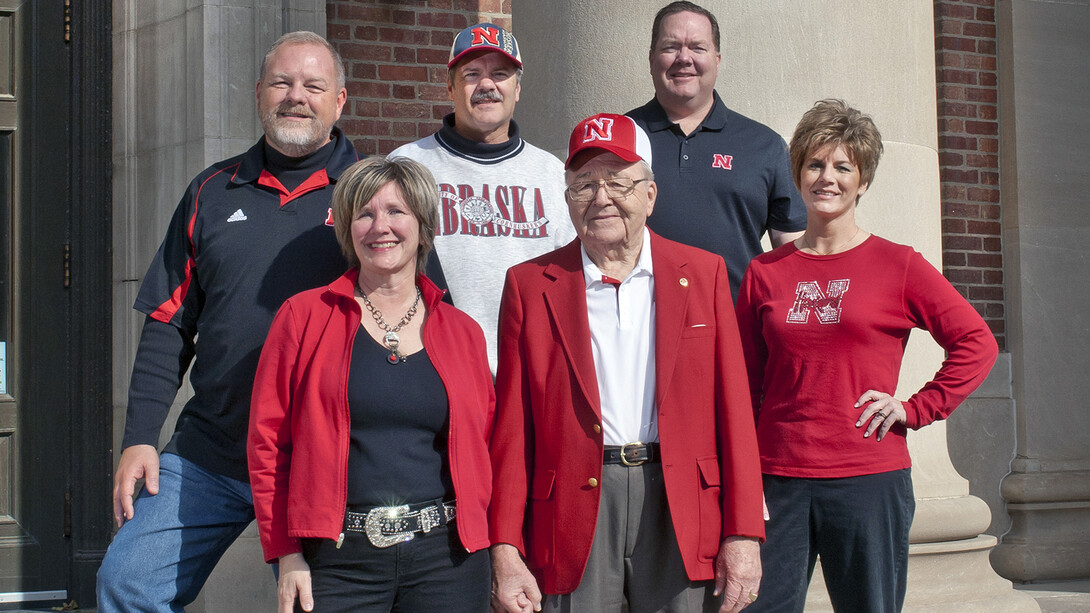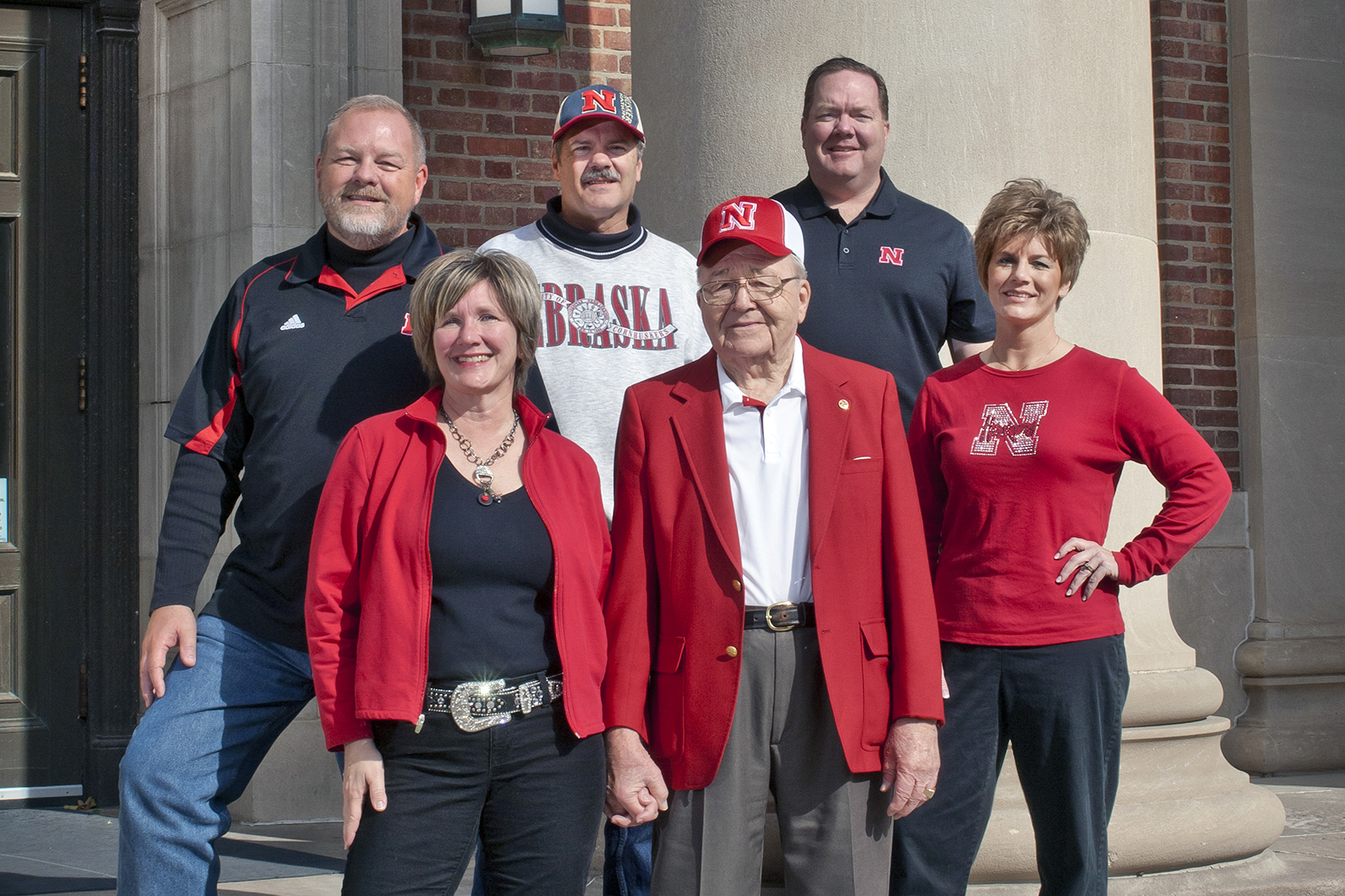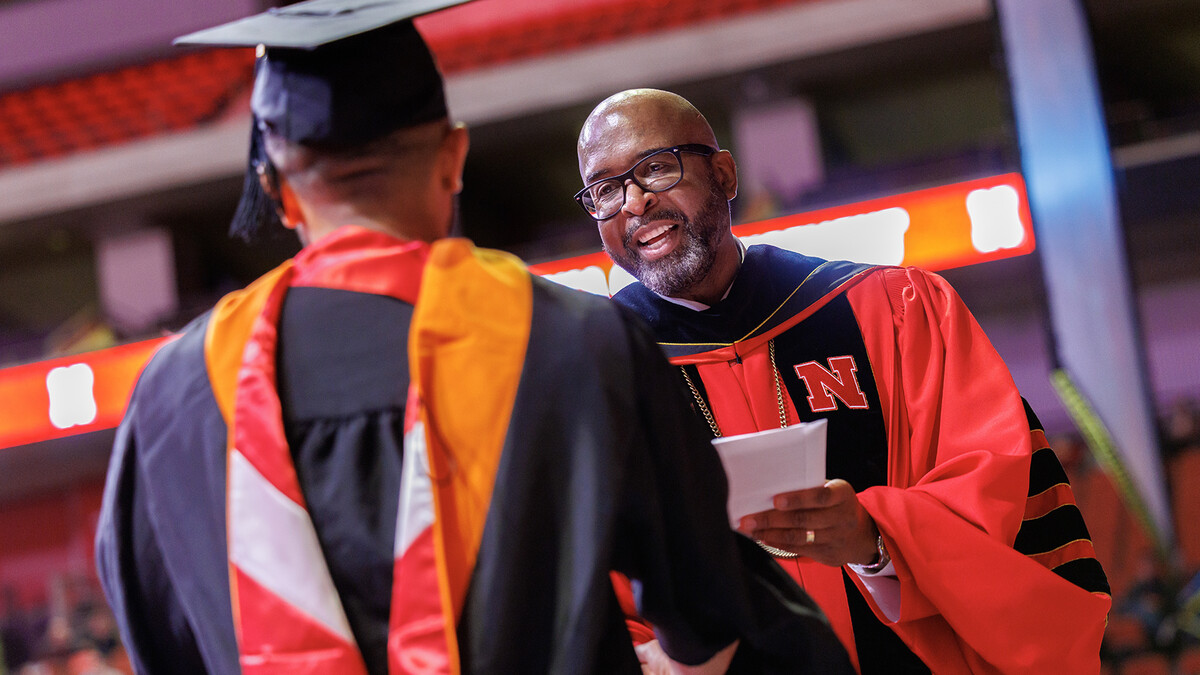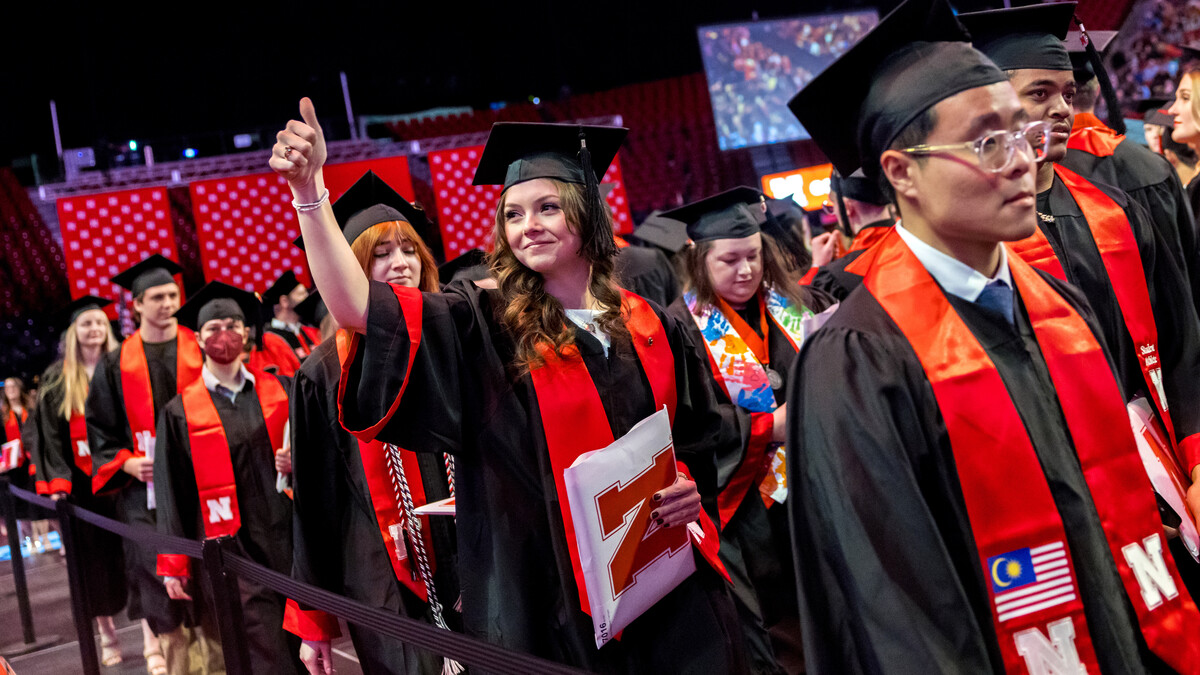
The Lienemann family has a long tradition of involvement with the University of Nebraska–Lincoln College of Business, one that spans multiple generations. In recognition of that history, the Lienemann Charitable Foundation has pledged $1.5 million to create a presidential chair in accounting and to support the Center for Entrepreneurship.
The gift honors the accounting career and legacy of the late Delmar “Del” Lienemann Sr. of Lincoln, who graduated from the University of Nebraska in 1941.
“The Delmar A. Lienemann Sr. Presidential Chair of Accounting is a way to honor our father and assist the College of Business dean in creating a permanently endowed senior faculty position for a top scholar,” said Doug Lienemann, president of the Lienemann Charitable Foundation, Husker alumnus and University of Nebraska Foundation trustee. “Del Sr. often credited the University of Nebraska with his personal success throughout his life. We believe he would also have been supportive of the excellent Center for Entrepreneurship to assist students in their future business paths. Our gift will assist in keeping this vital program available to students.”
The gift commitment, made through the University of Nebraska Foundation, provides support for:
- Faculty: An endowed chair in the School of Accounting was elevated to the Delmar A. Lienemann Sr. Presidential Chair in Accounting. The chair was initially created by the Lienemann family in 2011 to ensure future generations receive an outstanding accounting education at the university. Tom Kubick, a professor of accountancy, is the inaugural recipient of the presidential chair. A native of Lincoln, Kubick received his bachelor's, master's and doctoral degrees from Nebraska. The chair will provide an annual stipend for salary, research and program support.
- Center for Entrepreneurship: A 10-year gift commitment will support the campuswide Center for Entrepreneurship, where students learn entrepreneurial skills through hands-on competitions, workshops and mentoring by Nebraska entrepreneurs. The center serves as a hub for students, regardless of major, to pursue their ideas for owning a business or franchise, taking over a family business or exploring career options. The center awards more than $80,000 per year to students who pursue starting a business. In addition, through the student-led Husker Venture Fund, students learn about venture capital while providing funding to early-stage entrepreneurs in Nebraska.
“We are grateful for the longtime support of Del Lienemann and his family,” said Kathy Farrell, James Jr. and Susan Stuart Endowed Dean in the College of Business. “The presidential chair helps us better compete with our Big Ten peers for the best and most innovative faculty who prepare our students to lead the future of accounting. The gift to the Center for Entrepreneurship will benefit students across campus as they explore the many resources available and pursue the numerous entrepreneurial opportunities offered through the center at Nebraska.”
The Lienemann Charitable Foundation was established in 1967 by Del Lienemann Sr. and his wife, Charlotte. Del Sr. often credited his University of Nebraska education for preparing him to be a successful certified public accountant, real-estate developer, retailer, investor and civic leader. Lienemann served as president and CEO of the Ethel S. Abbott Charitable Foundation and was at one time Nebraska’s oldest active CPA. He died in 2018 at age 98. Charlotte Lienemann died in 1995.
The family’s ties to the University of Nebraska run deep as six of Del and Charlotte’s children are Husker alumni, with three sons also being College of Business graduates. The Lienemann and Ethel S. Abbott Charitable Foundations also made gifts to support the construction of Howard L. Hawks Hall, which opened in 2017 as the home of the College of Business.
This most recent gift was made as part of Only in Nebraska: A Campaign for Our University’s Future. The campaign is a historic effort to engage 150,000 benefactors to give $3 billion to support University of Nebraska students; faculty; academic and clinical programs; and research to address the needs of the state.








